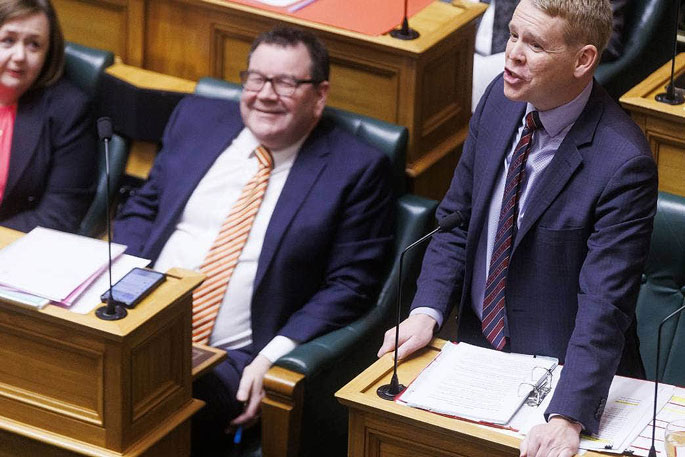Politicians are likely to get a significant pay rise after the election.
What they are paid has been frozen for the past six years. But a revision of their pay is required, by law, to begin within three months of the "return of the writ” – that’s the confirmation of the outcome of the election.
The last day for the return of the writ is November 7.
Politicians are currently paid the same as they were in July, 2017.
The prime minister gets $471,049 a year, the deputy prime minister $334,734, ministers within cabinet $296,007 and ministers outside cabinet $249,839.
The leader of the opposition gets $296,007 and other party leaders have their remuneration determined by the number of MPs in their party in Parliament.
The speaker is paid $296,007 and the deputy speaker $209,471. Whips have a base salary of $179,713 and earn more depending on how many MPs the party has.
Backbencher members of parliament get $163,961 a year. Those who chair or deputy chair select committees earn $179,713 and $163,961 respectively.
On top of that, there is an allowance for office expenses of $22,606 for the prime minister and $16,980 for other MPs.
MPs also get a contribution to their superannuation equal to up to 20% of their salary – paid on a ratio of $2.50 for every $1 contributed.
The prime minister also gets an official residence in Wellington, known as Premier House, or $45,000 a year in continuous accommodation payments. MPs can receive up to $31,000 a year for their Wellington accommodation, reduced if they share with another MP.
Previous prime ministers and their surviving spouses if they are no longer alive receive an annuity, if they have served for at least two years, of $11,400 per complete year of prime ministership up to $57,000 a year.
Remuneration Authority chair Geoff Summer says the MP pay freeze was implemented by the Labour-led Government elected in 2017.
“They changed the law to prevent the authority from making a determination of MPs’ pay from 2018. The legislation took some time to be passed, and by the time the authority became able to make that determination, Covid-19 was in place and so, after the 2020 election, the authority utilised a provision in the law that enabled it to make a zero increase determination for the three years 2021, 2022 and 2023. Consequently, the pay rates for MPs are currently what was determined for July 2017.”
He says the authority is not able to prepare anything for the upcoming pay review yet, so he can't even give a vague indication of what might happen.
Since 2017, the average earnings of workers in the rest of the country have increased just over 27 per cent.
“Whether or not there is any pay increase to be backdated to the election will depend upon what the review finds.”
He says the review is likely to be a major exercise and can take between two and four months.
“The authority is required to use ‘the information that is available to the authority at the time of its review’ but because of the legislated restriction on when we can start, we have no idea yet what that information might be. The initial part of the review will logically consist of finding that information.”
He says once the review is completed, the authority must determine what salaries and allowances will be set between October this year and June 30 next year, then from July 1 to June 30 of each of the following three years.
“Of course it is not guaranteed that there will be a pay increase in each of those periods, although there could be.”
In comparison, UK Prime Minister Rishi Sunak earns £164,951 (NZ$349,464). It has been reported in British media that ministerial pay has also been frozen in recent years.
US President Joe Biden earns US$400,000 (NZ$670,000) and has an expense account of US$50,000 and is allowed US$19,000 for entertainment.
Australian Prime Minister Anthony Albanese is set to receive a pay rise, taking his pay to almost A$587,000 ($NZ$637,522).



0 comments
Leave a Comment
You must be logged in to make a comment.